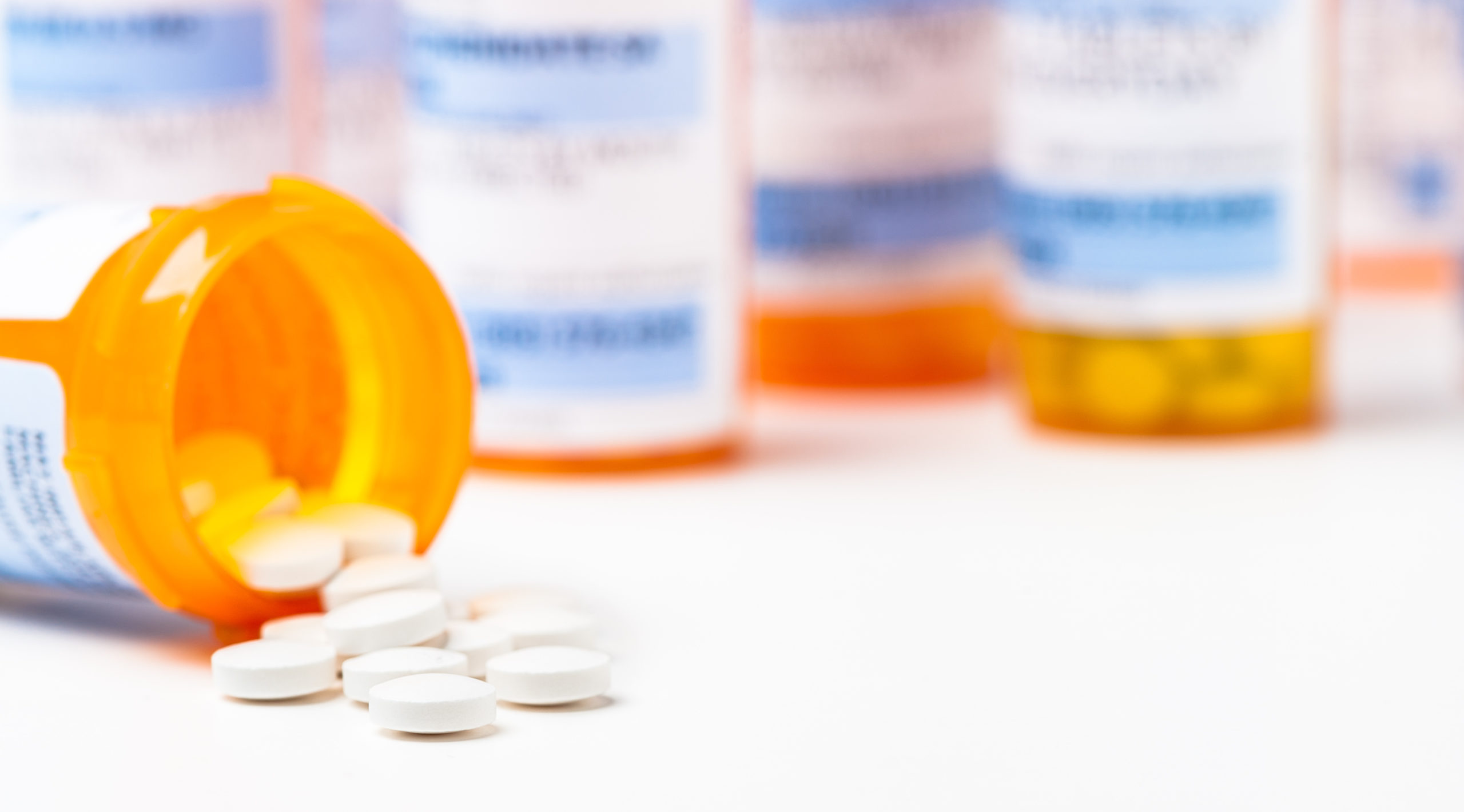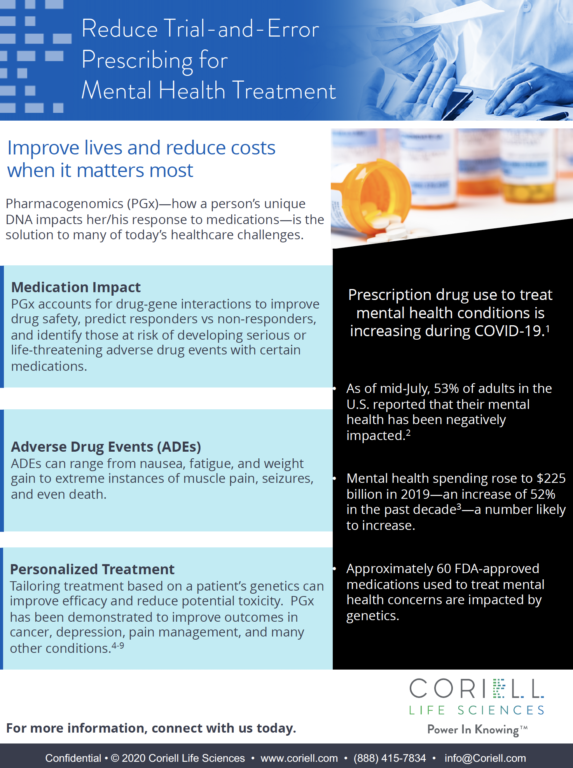Reduce Trial-and-Error through Genetic Testing for Mental Health Medications

Improve lives and reduce costs when it matters most.
Pharmacogenomics (PGx)—how a person’s unique DNA impacts her/his response to medications—is the solution to many of today’s healthcare challenges. Learn more about how pharmacogenomics can help with the prescription of psychiatric drugs.
Prescription drug use to treat mental health conditions is increasing during COVID-19.1
- As of mid-July 2020, 53% of adults in the U.S. reported that their mental health has been negatively impacted.2
- Mental health spending rose to $225 billion in 2019—an increase of 52% in the past decade3—a number likely to increase.
- Approximately 60 FDA-approved medications used to treat mental health concerns are impacted by genetics.
Medication Impact
DNA testing for psychiatric medication accounts for drug-gene interactions to improve drug safety, predict responders vs non-responders, and identify those at risk of developing serious or life-threatening adverse drug events with certain medications.
Adverse Drug Events (ADEs)
ADEs can range from nausea, fatigue, and weight gain to extreme instances of muscle pain, seizures, and even death.
Personalized Treatment
Tailoring treatment based on a patient’s genetics can improve efficacy and reduce potential toxicity. PGx has been demonstrated to improve outcomes in cancer, depression, pain management, and many other conditions.4-9
Reduce Trial-and-Error for Mental Health Medications with Genetic Testing
Power In KnowingTM
Coriell Life Sciences (CLS) is a precision medicine company using pharmacogenomics to improve lives, reduce healthcare costs, and simplify decision-making.
Download this overview for a Case Study in Smarter Healthcare and learn how we work with Employer and Payer Organizations, Physicians, and Providers, and how Patients and Caregivers can benefit.

Get in Touch
For more information, connect with us today.
1America’s State of Mind Report. https://www.express-scripts.com/corporate/americas-state-of-mind-report
2The Implications of COVID-19 for Mental Health and Substance Use. https://www.kff.org/coronavirus-covid-19/issue-brief/the-implications-of-covid-19-for-mental-health-and-substance-use/
3Mental Health Spending Now & After the Pandemic https://openminds.com/market-intelligence/executive-briefings/mental-health-spending-now-after-the-pandemic/
4Romero Lagunes, M.L.; Vera Badillo, F.E. Design and Implementing Pharmacogenomics Study in Cancer. Adv Exp Med Biol 2019, 1168, 43-77, doi:10.1007/978-3-030-24100-1_4.
5Jha, M.K.; Trivedi, M.H. Pharmacogenomics and Biomarkers of Depression. Handb Exp Pharmacol 2019, 250, 101-113, doi:10.1007/164_2018_171.
6Morales-Espinosa, D.; Garcia-Roman, S.; Karachaliou, N.; Rosell, R. Pharmacogenomics in the treatment of lung cancer: an update. Pharmacogenomics 2015, 16, 1751-1760, doi:10.2217/pgs.15.99.
7Roden, D.M. Cardiovascular pharmacogenomics: current status and future directions. J Hum Genet 2016, 61, 79-85, doi:10.1038/jhg.2015.78.
8Sleder, A.T.; Kalus, J.; Lanfear, D.E. Cardiovascular Pharmacokinetics, Pharmacodynamics, and Pharmacogenomics for the Clinical Practitioner. J Cardiovasc Pharmacol Ther 2016, 21, 20-26, 429 doi:10.1177/1074248415590196.
9Bondy, B. Pharmacogenomics in depression and antidepressants. Dialogues in clinical neuroscience 2005, 7, 223-230.